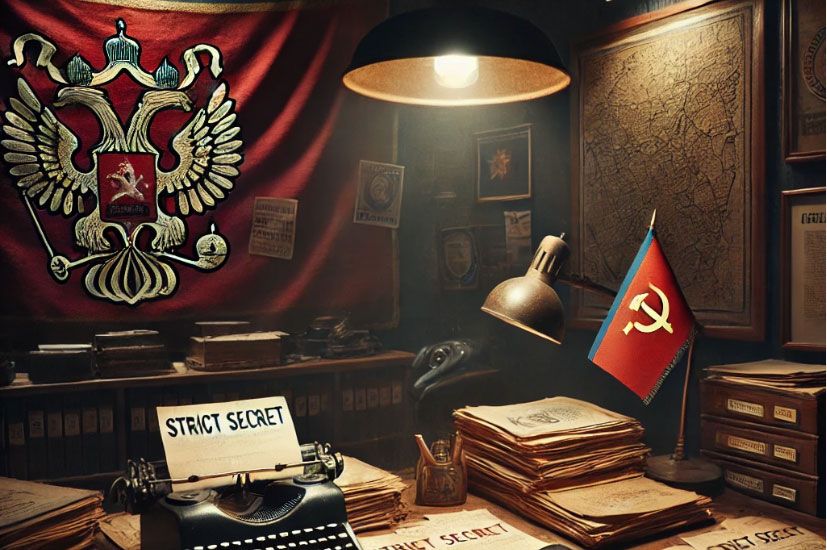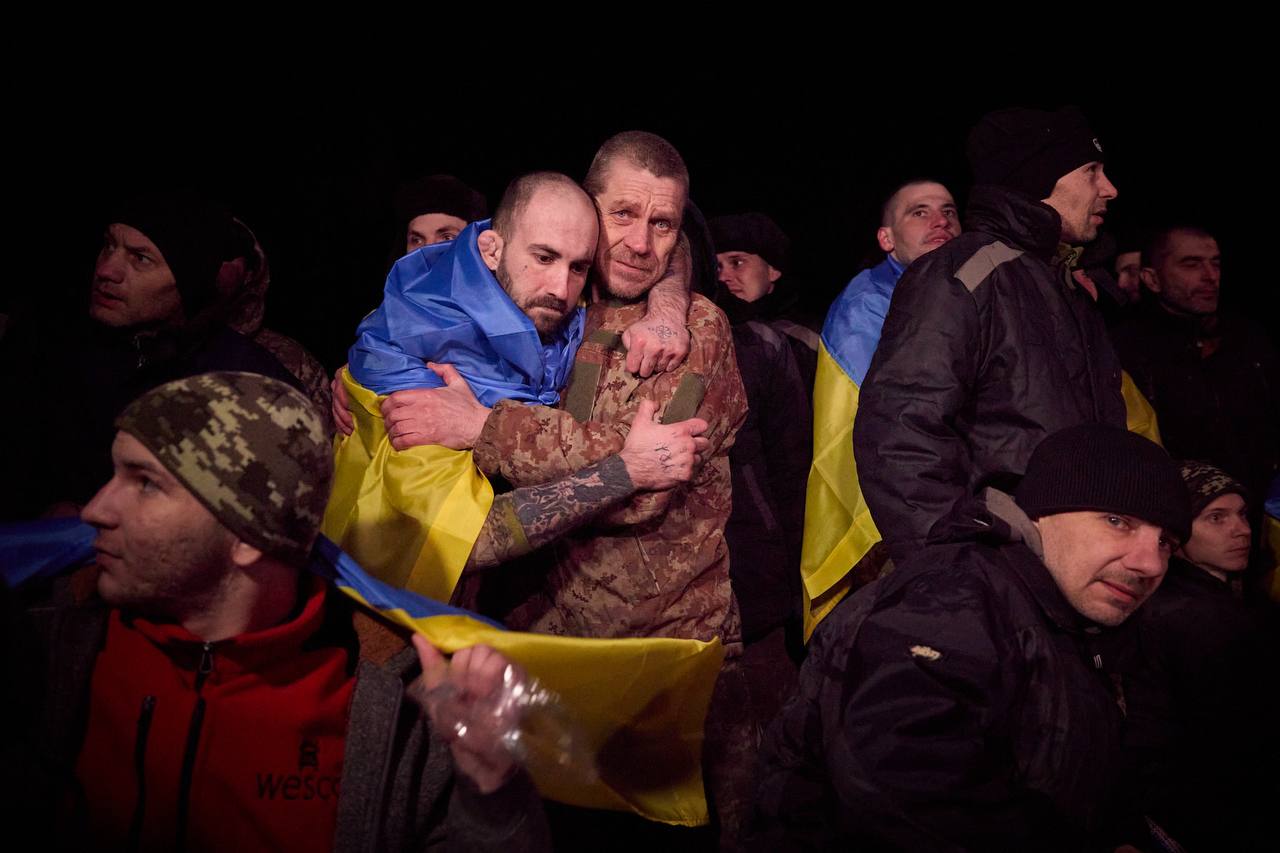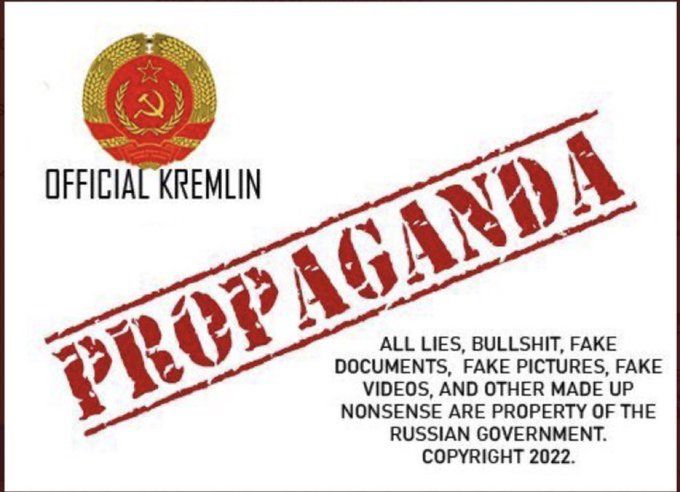These directives were systematically organized to target various aspects of society, including governance, culture, education, and the economy, ensuring every facet of life remained under Moscow’s control.
The Purpose: Totalitarian Control
With these overarching goals in mind, the KGB employed a range of corrosive tactics aimed at undermining societal resilience and fostering dependence on the regime.
The document’s primary goal was clear: to subjugate satellite states through a combination of infiltration, manipulation, and suppression.
By targeting key societal pillars such as governance, education, religion, and the economy, the KGB sought to ensure that these nations remained irrevocably dependent on Moscow.
The directives were distributed across these areas to dismantle local governance, enforce economic dependency, suppress cultural expression, and control educational narratives.
The directives made no pretense of fostering genuine partnership; instead, they aimed to systematically dismantle any foundation for independence.
For instance, the directives mandated that all youth organizations be unified under leadership approved by Soviet special services, ensuring ideological indoctrination from an early age (Directive 6).
Meanwhile, popular teachers were to be removed from schools and replaced with politically loyal individuals, and entire academic disciplines—such as philosophy, logic, and genetics—were banned to prevent independent thought (Directive 35).
Corrosive Tactics: Breaking Societal Bonds
A recurring theme in the directives was the deliberate erosion of trust, unity, and resilience within society.
The KGB understood that a divided population was easier to control, and many tactics outlined in the document aimed to foster division and suppress solidarity:
- Undermining Private Enterprise: Private businesses were denied resources and charged exorbitant prices for raw materials, ensuring their inevitable collapse (Directive 31). This was a calculated effort to eliminate economic independence and reinforce reliance on state-controlled industries.
- Destruction of Local Identity: The rewriting of history—highlighting the treachery of monarchs while erasing national heroes—was designed to strip nations of their historical pride and foster resentment against pre-communist systems (Directive 35).
- Creating Economic Hardship: By keeping workers at subsistence levels and tightly controlling resources, the directives ensured populations remained too preoccupied with survival to resist the regime (Directive 33).
The Cruelty of Suppression
The directives left no room for dissent. Opposition figures were to be eliminated before they could gain popular support, either through imprisonment on fabricated charges, defamatory campaigns, or outright "unforeseen accidents" (Directive 40).
This systematic targeting extended to any perceived threat within the regime itself, where even loyal officials could be removed if they were deemed too influential (Directive 42).
Even those within the regime—party officials or state leaders—were not safe.
The KGB directives advocated for their compromise and eventual removal if they became too influential or disobedient (Directive 42).
Furthermore, the regime’s disdain for humanity extended to basic necessities.
The destruction of independent water supplies and the pollution of potential drinking water reserves were explicitly encouraged as measures to control populations and suppress resistance (Directives 28 and 29).
This calculated cruelty exemplifies the extremes to which the Soviet system was willing to go to maintain dominance.
An Intent to Destroy Societies
The chilling precision and breadth of these directives underscore a calculated effort to dismantle societies from within, targeting every layer to ensure dependency on Soviet control.
Rather than building a partnership or fostering loyalty, they sought to hollow out societies, reducing nations to puppets entirely dependent on Moscow.
By eliminating critical thinkers, suppressing cultural and religious identities, and stifling economic growth, the KGB directives aimed to create a population incapable of resisting Soviet control.
For example, the removal of respected local leaders and their replacement with incompetent but loyal individuals ensured that no alternative centers of power could emerge (Directives 8 and 44).
Similarly, the emphasis on centralized control over infrastructure, such as roads and transport, ensured the rapid deployment of military forces to crush uprisings (Directive 39).
The Legacy of the Directives
The KGB’s 1947 directives provide a stark reminder of the destructive potential of unchecked authoritarianism.
Their implementation left a profound and lasting impact on the societies they targeted, many of which struggled to recover their autonomy, economic stability, and cultural identity even decades after the collapse of the Soviet Union.
For example, in Hungary and Czechoslovakia, the long shadow of these directives contributed to the suppression of democratic movements during the mid-20th century, leaving lasting scars on national identity and governance.
This document is not only a historical artifact but also a warning, emphasizing the need to remain vigilant against authoritarian tactics and recognizing the parallels in modern regimes that employ similar strategies of control and suppression.
The tactics outlined within it—espionage, propaganda, economic suppression, and the strategic erosion of societal trust—continue to be employed by authoritarian regimes worldwide.
Understanding the corrosive strategies used by the Soviet Union is essential for recognizing and countering similar patterns in modern geopolitics.
By studying these directives, we gain a deeper understanding of the methods used to dismantle societies from within, and in doing so, we reinforce our commitment to protecting the principles of democracy, freedom, and national sovereignty.
The English translation of the Directives with the original directive in bold letters followed by context in regular font for reference.
Take your time digesting this text and I challange you to find similar policies in today's politics because you will.
To the Warsaw branch of the KGB
Moscow,
June 2, 1947 (Strict Secret) K-AA/CC 113.
Directive NK/003/47
Basic Directives of the KGB for Soviet Bloc Countries
Published and annotated by Bogdan Ficeac in the book Techniques of Manipulation.
1. It is forbidden to allow locals recruited by us as informants to enter embassies.
Meetings with these individuals must be organized by the specially designated service and can only take place in public places. Information is to be collected by the embassy through the organs of special services.
Spy activities had to be carried out in complete secrecy, usually following the "domino principle," where each link in the intelligence service knew only what was strictly necessary for their activity.
At the same time, an agent’s work contacts were limited only to the immediate links. Thus, discovering one spy made it much harder to compromise the entire network.
The instruction, besides emphasizing the confidentiality of informant recruitment, highlighted the important role played by Soviet embassies in forming powerful espionage networks within the countries where they operated.
2. Ensure that no connections of any kind are established between our soldiers and the civilian population.
It is unacceptable for our officers to visit locals in their homes; likewise, it is unacceptable for simple soldiers to form relationships with local women. Relationships between our soldiers and the civilian population, or between local soldiers, are not permitted.
To build an effective army, the dehumanization of the enemy is essential. Once soldiers stop seeing their future victims as fellow human beings, they find it much easier to follow attack orders, even to kill.
For this reason, any emotional ties with the enemy are prohibited. Such ties between members of the two rival camps would render the techniques of dehumanizing future victims ineffective and could generate entirely undesirable phenomena (desertion, disobedience to orders, etc.).
It must also be noted that the strongest manipulation techniques rely on isolating individuals (in barracks or at the front, far from normal life), followed by imposing new behavioral norms (directed through military regulations).
Human interaction could quickly neutralize the effects of isolation and form strong emotional bonds that would undermine efforts to achieve unconditional obedience from soldiers to their commanders' orders.
All of this demonstrates that the USSR regarded all satellite states as potential enemies. These enemies were to be subdued mercilessly, even at the cost of large-scale massacres (as indeed happened). This was the true nature of the "friendship" the great Eastern neighbor cultivated with its socialist neighbors.
3. The liquidation of citizens maintaining unauthorized connections with the Polish Communist Party, Polish Socialist Party, the Polish Communist Youth Organization, the Home Army, or other associations must be accelerated.
For this purpose, elements of the military opposition must be used. No matter how genuine they may seem, connections with "brotherly" parties or organizations could only be initiated in a strictly organized and closely supervised framework "from the Center."
Those daring to act on their own initiative were to be liquidated without mercy.
For this, "elements of the military opposition" were used to place the blame for killings on the enemy. The care taken to control every contact with similar parties in satellite countries further underscores the disdainful and hostile attitude of Moscow's communist leaders toward those they themselves had placed in leadership positions in neighboring countries.
At any moment, reasons—real or imagined—could arise to execute even their loyal followers, so relations with them had to remain strictly within approved and controlled boundaries.
4. Only those soldiers who stayed in our country (the Soviet Union) before joining the Kosciuszko Army (Polish Army fighting alongside the Soviet Army on Soviet territory) may participate in military actions.
It will lead to its total destruction. During their time in the Soviet Union, soldiers underwent intense brainwashing to instill a sense of unconditional loyalty to Moscow. This made them trustworthy during military operations.
However, the effects of indoctrination could fade over time as soldiers returned to their compatriots, resumed old habits, and began using their native language again. As time passed, control over them became harder to maintain.
Therefore, even if allied armies had proven to be faithful comrades in arms with the Soviet Army, they ultimately had to be destroyed to eliminate any future surprises.
5. The unification of all parties into a single party must be accelerated, ensuring all key roles are held by individuals belonging to our secret services.
Total control over society had to be exercised only from the Center. Totalitarian systems, including those of communist origin, completely excluded political pluralism.
Within them, there was only one "correct" doctrine—the one propagated by the leaders from the Center.
Any deviation from the line had to be punished with utmost severity. For this, it had to be detected as quickly as possible by individuals specially trained for such missions.
6. Unify all youth organizations. From regional leaders upward, leadership positions should be allocated to individuals approved by our special services.
Members of youth organizations represented the future of the single-party system. Therefore, they had to be carefully vetted to remain loyal to Moscow, no matter the situation in their country.
The youth also served as the raw material for creating the "new man," and those selected to join these organizations were meant to represent the "elite" of future detachments eternally faithful to the Kremlin.
7. Organize and ensure that officials elected as deputies to congresses cannot retain their mandates for the entire term ahead of them.
Deputies must not under any circumstances convene meetings between enterprises. If such a meeting is unavoidable, those involved in drafting concepts or advancing demands should be removed. For each congress, new individuals must be prepared, and only those approved by our secret services should be elected.
No local figure was allowed to gain too much authority, as authority made them much harder to control.
The consistent obstruction of competent individuals, combined with their replacement based on the "cadre rotation" principle, prevented them from establishing themselves among their peers.
This limited their influence on those around them, ensuring that the avenues of manipulation from the Center remained open.
8. Pay special attention to individuals with organizational skills and guaranteed popularity.
These individuals must be co-opted, and if they resist, they should not be offered higher-ranking positions. No local individual was allowed to gain significant popularity or mass appeal. Popularity made them harder to control.
Competent individuals were either recruited or neutralized—at any cost. There was no middle ground.
9. Ensure that state officials (excluding security and mining personnel) receive low wages.
This primarily applies to health, justice, culture, and those holding leadership positions. Anyone capable of generating public opinion currents, acting as agents of influence, or gathering followers around them had to be silenced.
Low salaries forced them into a miserable existence, preoccupied with daily survival, leaving no time for other concerns. Cultural figures, doctors, judicial workers, and other state officials—who, by the nature of their professions, could hold sway over others—had to be marginalized and subjected to public scorn.
Justice, in particular, had to be dragged into crisis, making judges completely dependent on the authorities.
The exceptions were security workers, whose loyalty was maintained through privileges, and miners. The latter, because of their isolated working conditions, were highly impressionable and easily manipulated. Any spark of dissatisfaction among them could ignite an uncontrollable "powder keg."
For this reason, above-average salaries were meant to foster a sense of loyalty to the Center, allowing them to be deployed for hidden manipulative purposes without realizing it.
10. In all governing bodies and most factories, we must have individuals collaborating with our special services (without the knowledge of local administrative bodies).
Large worker collectives always represented a potential threat. Just as their discontent had been easily exploited in the past to spark revolutions that established the communist system, they could rebel at any time against daily misery.
After all, the workers had "nothing to lose but their chains." This idea had been used to mobilize them in revolutions, but it could also inspire them to revolt against the new masters.
The leaders in the Kremlin understood well the strategy of overthrowing regimes with the help of workers and feared becoming victims of it themselves—which, in many cases, indeed happened.
For example, in Romania, the Ceaușescu regime fell when large worker collectives joined the street revolutionaries.
For these reasons, workers had to be closely and continuously monitored by specially trained individuals infiltrated into their ranks.
11. The local press must strictly avoid transmitting information regarding the quality and assortment of goods being transported to us. This activity must not be referred to as trade. It must always be stated that these are goods exchanges.
The great Eastern neighbor was not to be perceived as a business partner but as a friend. And with a friend, one does not conduct business, as suspicions or dissatisfaction—especially from the weaker party—might eventually arise.
For this reason, absolute secrecy had to be maintained regarding the goods sent to the USSR. Furthermore, the term "goods exchanges" gave the impression of mutual benefit, masking the exploitation carried out by Moscow's leaders at the expense of the satellite states.
12. Pressure must be exerted on services to deny property deeds for land. Documents should show the land as allocated for use, not as the owner's property.
The sense of ownership had to be annihilated by any means. By destroying the material basis for personal independence, individuals could be stripped of their identity and much more easily submerged into the anonymity of maneuverable masses that were unconditionally subjected to authorities.
13. Policies regarding small peasant farms should aim to make them unprofitable. Afterward, collectivization must be initiated.
If greater resistance arises, reduce access to production tools while simultaneously increasing delivery quotas. If the intended results are still not achieved, agriculture should be rendered unable to supply the entire country, forcing reliance on imports.
Private property, especially in rural areas, had to be destroyed. Small agricultural owners were relatively independent as they could sustain themselves and even produce surplus within their own households.
They did not depend on relationships with others for survival and were not particularly concerned with attaining high social positions or privileges. Their near-isolation made them very hard to manipulate.
Therefore, the foundation of their security—land ownership and self-sufficient farming—had to be undermined gradually through various methods, making it unprofitable. Impoverished, harassed, and stripped of hope for the future, small farmers would eventually submit to collectivization.
If resistance persisted, imports were used to deliver the final blow. This method was employed in nearly all socialist states in their formative decades and later as well.
For example, in Romania in 1992 and 1993, wheat imports were used even though small producers had achieved record yields.
14. Every effort must be made to ensure that decisions and orders—whether legal, economic, or organizational—are untimely.
Satellite states had to remain in a constant state of disorganization. Laws had to conflict with one another or arrive too late, while orders and decisions had to be inefficient, and hierarchies unstable.
Maintaining chaos preserved societal weaknesses and made control easier. People were unable to solidify their own value systems, their sense of insecurity grew, and manipulators found fertile ground for their actions.
15. Certain cases must be simultaneously reviewed by multiple committees, offices, or institutes, with none allowed to make a decision without consulting the others (except for cases involving the mining industry).
This strategy was another means of creating chaos, preventing the formation of functional hierarchies, and ensuring that no institution could accumulate too much authority. Essentially, this was a variation of the old "divide and rule" principle.
The mining industry was an exception because miners served as the regime's reserve army, easily manipulated. For manipulation to be effective, a strong sense of hierarchy had to function among the miners. At the command of their leader (who was, of course, a KGB agent), they were expected to mobilize and execute orders without hesitation or objection.
Total isolation from the outside world enabled the leader to convince them that only his directives were "right" and "good" for them.
This created a veritable army of robots, maintained underground, ready to act at any moment.
16. Factory self-management cannot exert any influence over factory operations. It can only work to implement decisions.
The socialist principles often touted, including "worker self-management," were intended only as a propagandistic facade and, where necessary, to shift blame for failures onto the workers themselves. Successes, on the other hand, had to be attributed exclusively to the "wise vision" of the leadership at the Center.
To this end, the Center had to directly coordinate all activities, while factory self-management served only as a simple executor.
This approach also prevented certain competent but unchecked and unaligned individuals within worker collectives from accumulating authority or popularity.
17. Trade unions are not allowed to oppose the leadership.
Unions must be preoccupied with other issues, such as organizing holiday rest periods, discussing pension and loan applications, cultural and recreational programs, organizing trips, distributing scarce goods, and justifying political leadership decisions.
The role of trade unions, like that of all other civic, youth, and public organizations, must be that of simple vassals under the total control of the single party—more precisely, the Kremlin's Center. They were to blindly follow orders, promote the policies of the single party, and channel public energy into various other sectors to minimize the risk of discontent or uprisings.
Although they bore the names of similar organizations in democratic states to give the illusion of freedom, they fundamentally differed.
In democracies, unions and other non-governmental organizations serve their members or citizens. In totalitarian systems, they serve the single party, often subtly or openly acting against the legitimate interests of the citizens.
18. Only leaders who execute tasks flawlessly without analyzing them beyond their scope of activity should be promoted.
The Kremlin leadership did not need partners in satellite states but executors. This policy was to be applied at all levels, even in the smallest enterprises.
The criteria for promotion were not competence, authority, intelligence, or popularity, but unconditional loyalty to the Center. Cultivating loyalty—especially among the incompetent, as they were the most zealous executors—was not seen as a flaw but a virtue.
The enormous economic losses suffered by socialist countries due to the promotion of incompetents were considered irrelevant. The goal was to maintain total control over every segment of political, economic, social, and cultural life.
Disasters were even desirable because prosperity might give people the leisure to think critically.
19. Party, state, or administrative officials must be placed in situations where they are compromised in the eyes of their employees, making it impossible for them to return to their original circles.
No matter how loyal they were to the Kremlin, ideological partners in satellite states could not be allowed to gain too much power.
Regardless of the services they rendered to Moscow, high-ranking party or state officials in "brotherly" countries had to be irreparably compromised—even imprisoned, often following "exposure trials" or by reevaluating their past according to newly invented rules and concepts.
The history of the communist period in most Central and Eastern European countries proves that this principle was thoroughly applied for decades. Each time a new leader came to power, their predecessors were denounced, judged, vilified, imprisoned, and so on.
Never, during the existence of communist regimes, were those accused allowed to return to power.
20. Local military personnel can be assigned responsible positions in locations where special service agents are already placed.
The military also had to be closely monitored by agents infiltrated into key positions. Every local military figure had to have at least one "shadow" from the KGB to report on their every move, uncover their weaknesses for potential future blackmail, and gain detailed knowledge of the most secret plans of "brotherly" armies.
Since infiltrating spies into already established leadership teams carried some risks, it was far more efficient to promote local military personnel into positions where KGB agents were already stationed.
This ensured that the authority of the satellite countries' military personnel would grow alongside that of Kremlin agents.
21. During every military action and shooting exercise, the quantity of ammunition must be permanently and seriously monitored, regardless of weapon type.
The possibility of a military conspiracy aiming to instigate a rebellion against the Eastern master could always arise. Thus, in addition to monitoring all influential individuals in the military, existing ammunition had to be meticulously controlled to prevent the formation of clandestine stockpiles that could be used later.
22. Every research institute and laboratory must be kept under observation.
Scientific advancements could at any time offer a tool to counteract Russian influence or to achieve supremacy in a particular field.
For this reason, research institutes had to be carefully supervised to prevent such developments while also allowing for the acquisition of significant discoveries through economic espionage.
23. Special attention must be given to inventors and innovators, and their work must be developed and supported, but every invention must be consistently registered with the Center.
Only those inventions with applicability in the mining industry or those explicitly instructed by us are permitted. Inventions that would increase the production of finished goods while reducing the extraction and production of raw materials or impede the fulfillment of directives must not be pursued.
If an invention becomes known, its sale abroad must be arranged, and the documentation detailing its value and description must remain unpublished.
The work of inventors and innovators had to be subjected to the strictest control. If certain inventions could accelerate economic progress or improve the population's standard of living, they had to be undermined. T
he population was to be kept at the subsistence level, ensuring total dependence on the system's leaders, while the satellite states' economies were to remain wholly reliant on their relationships with the Soviet Union.
The exception was the mining industry, which was to be developed to provide the necessary raw materials for the economy and maintain the miners' prosperity. Miners could then serve as a loyal reserve force whenever needed. If certain inventions became known, they were to be exploited for state benefits, as no income source was to be neglected.
However, inventions were to remain secret to prevent attention being drawn to this covert policy of surveillance and utilization.
24. The punctuality of transport must be disrupted (except for those covered under NG 552-46 guidelines).
The greater the chaos, the easier it was to control the country and its population. Additionally, people needed to be constantly preoccupied—complaining about some driver's work, frustrated by delays, or annoyed by overcrowding—so that they would lose the habit of clear thinking and fail to recognize that the entire system was flawed.
During critical moments, when daily living conditions became unbearable, even a minor regulation accompanied by the public scapegoating of a few individuals could defuse tension and even attract gratitude from the population for a brief moment of respite.
The cycle would then begin anew.
25. In factories, various meetings and professional conferences must be initiated, and the proposals, observations, and their authors must be recorded.
The professional concerns of citizens, particularly those in major industrial centers, had to be precisely known to prevent surprises.
These concerns were not only to be known but also recorded, classified, and archived to monitor the professional evolution of each individual, their way of thinking, reasons for satisfaction or dissatisfaction, desires, and intellectual potential.
By maintaining these individual files, one could anticipate the behavior of each person in specific situations.
26. Discussions with workers on current production issues and criticism of the past and local problems must be publicized. The causes of the issues being discussed must not be eliminated.
The thoughts and concerns of the "leading" class had to be channeled toward work-related or local issues to avoid raising serious questions in the minds of some individuals.
To demonstrate that the communist system encouraged freedom of opinion (as the ideologists at the Center claimed), critical positions were encouraged, but only about the past or minor issues that could not lead to questioning the entire system.
For similar reasons, self-criticism was also encouraged. However, for such diversionary discussions to continue indefinitely, it was essential to preserve the causes that made them possible.
27. Statements by local leadership may have a national or historical tone but must not lead to national unity.
To maintain the appearance of independence from Moscow, positions with a historical tone (of course, referring to the rewritten communist version of these nations' histories) or a nationalist tone were allowed.
In the latter case, these positions were used to amplify interethnic tensions in line with the well-known "divide and rule" principle. However, limits had to be observed to prevent legitimate territorial claims from arising.
Even after the collapse of communism, this directive continued to be applied in some countries within Moscow's sphere of influence.
For example, in Romania after the December 1989 revolution, nationalist tendencies flared up fiercely, but no concrete or sustained efforts were made to reunify the country with Romanian territories beyond the Prut River.
28. Special attention must be paid to ensure that newly reconstructed or newly built neighborhoods do not have independent water networks not connected to the main system. Old sewer systems and wells must be systematically eliminated during this process.
Water is essential for human survival. In the case of uprisings that were difficult to counteract, control over water networks provided the opportunity to launch diversionary and terrorist actions with catastrophic effects on the insurgents.
For the total success of these actions, it was necessary to connect all water networks to a central system and destroy independent sources.
This method had been known and applied in various forms for a long time. For instance, ancient peoples fleeing barbarian invasions always took care to poison wells.
Furthermore, the existence of a unified water supply system made it possible to spread rumors about water poisoning, increasing tension and insecurity and making the targets more vulnerable.
Such rumors were used intensively during the Romanian Revolution.
29. The reconstruction of industrial facilities and the construction of new ones must ensure that residual materials are directed to water reservoirs that could serve as drinking water reserves.
Not only wells and independent water supply systems had to be destroyed, but any other potential drinking water reserves as well. In this sense, the pollution of lakes, rivers, aquifers, and other sources was imposed.
30. In reconstructed or newly built cities, no excess space in housing is allowed that could be used for long-term sheltering of animals or storing food reserves.
In the event of resistance movements or other crisis situations, the chances of survival for those fighting against the system had to be minimized to the greatest extent possible.
31. Privately owned enterprises and industrialists will receive only the quantities of raw materials and equipment that prevent the production of quality goods. The price of these materials must be higher than similar products from state enterprises.
In some socialist states, private enterprises continued to exist for a time. However, they were undermined to ensure their bankruptcy as quickly as possible.
Such cases were then used by communist propaganda as "living" examples of the superiority of the socialist production system over the capitalist one.
32. The expansion of state ownership to the highest degree in all fields must be facilitated. Criticism of administrative bodies is allowed, but under no circumstances is the reduction of personnel or normal functioning of these bodies permitted.
State and single-party control had to be imposed in absolutely every domain. To facilitate this, it was necessary to create a massive bureaucratic system in whose labyrinths any rational demands, unwanted initiatives, or manifestations of independence would be lost.
The bureaucratic system could be criticized to give the dissatisfied an illusion of free expression, but it had to remain operational.
33. Special care must be given to all manufacturing projects in the mining industry and other specially designated enterprises. Proper supply of the domestic market must be prevented.
The "levers" of the socialist economy had to remain in the hands of those at the Center. Once again, special attention was given to the mining industry and other "priority sectors." Regarding the population, they were to be kept at the subsistence level.
The daily struggle to meet basic needs was to be a constant preoccupation, leaving no time for critical thought. At the same time, this created an opportunity to reward loyal individuals with privileged access to better supplies.
34. Special attention must be given to churches. Cultural-educational activities must be directed to create a general antipathy toward them. The printing houses, archives, content of sermons, songs, religious education, and even funeral ceremonies must be monitored.
The church could provide refuge, connect individuals to a different value system and worldview, and offer support to endure the harshest trials.
The church had to be neutralized so that the only "sacred science" would remain communist ideology.
35. Popular teachers must be removed from elementary schools, specialized schools, high schools, and universities. Their positions must be filled by appointed individuals.
Differences between subjects must be analyzed, the amount of documentary material reduced, and the teaching of Latin, Ancient Greek, general philosophy, logic, and genetics must be stopped in high schools.
When teaching history, it should not be mentioned which rulers served or sought to serve the country's good, but instead, the treachery of kings and the struggles of the oppressed people must be highlighted. Specialized schools should introduce narrow specialization.
Popular teachers were extremely difficult to control. The special attention given to them was motivated by their influence on youth, shaping conceptions and attitudes potentially hostile to communist ideology.
Attitudes learned at a young age had a significant chance of persisting throughout life.
Therefore, popular teachers had to be replaced with ideologically convinced political instructors. Educational materials had to be drastically reduced to provide students with only rudimentary general knowledge, strictly filtered by regime censorship. True education was limited to manuals on scientific socialism, political economy, and other textbooks rewritten through the lens of communist ideology.
Latin and Ancient Greek were banned to prevent access to the works of great thinkers. General philosophy was prohibited, as Marxist-Leninist philosophy was the only "true" philosophy. Logic was barred to prevent individuals from critically analyzing communist ideology.
Genetics and other advanced sciences, which could reveal new cognitive horizons that undermined materialism and dialectics, were also forbidden. History was rewritten to minimize national heroes, ensuring maximum effectiveness in fostering hatred toward monarchy and capitalism.
Narrow specialization in technical schools aimed to create highly skilled workers in their field but powerless in others—essentially human robots.
36. Organize artistic or sporting events that celebrate the locals' fight against occupiers (excluding Russians, especially Germans) and promote the fight for socialism.
The population occasionally needed entertainment or "bread and circuses." However, this had to indoctrinate citizens. History was rewritten so that any national celebration became an opportunity to glorify the "struggle for socialism" and the "much-loved" leaders.
37. On a local level, works about those locals who lived in our country before the revolution or during World War II are prohibited.
The illusion of independence from Moscow in satellite states had to be preserved to avoid needlessly offending the national pride of the vassal peoples.
The past of certain local figures—many of whom held significant positions, even the highest in state and party, or were part of reserve cadres—was kept secret.
These individuals had been ideologically trained in the Soviet Union and indoctrinated in absolute loyalty to the Kremlin.
38. If an organization supporting an alliance with us insists on monitoring the economic activities of official leadership, immediately launch a campaign accusing it of nationalism and chauvinism.
This campaign should include the desecration of monuments belonging to us, the destruction of cemeteries, and the dissemination of leaflets denigrating our nation, culture, and treaties with us. Propaganda work must also involve locals, exploiting their existing hatred against these organizations.
In socialist states, organizations based on communist ideology and even professing pro-Russian stances could emerge. However, the danger always existed that declarations of loyalty to Moscow were merely a facade behind which these organizations might promote national independence, at least economically.
Directly banning them was difficult since clear ideological incompatibilities could not always be cited, and offending national pride was undesirable.
Thus, a diversionary tactic was recommended: accusing the organization of nationalism and chauvinism. Communist doctrine defined nationalism as a "political weapon of the bourgeoisie, used to incite national hatred, justify national oppression, conceal expansionist tendencies, and hinder the united struggle of workers against exploitation."
Nationalism was in complete opposition to "proletarian internationalism," while chauvinism was described as a "backward and outdated political attitude."
These ideological "sins" were to be supported by staged acts of extreme severity, such as monument desecration, anti-Soviet propaganda, or hostility toward the "friendship" between the satellite state and the Eastern neighbor.
Local collaborators could always be found to provoke public aversion to the targeted organization, paving the way for its destruction.
39. Take care in constructing and reconstructing roads, bridges, and transport networks to ensure that, in the event of military intervention, locations of resistance or concentration of reactionary forces are accessible from all sides.
The astonishing speed with which Soviet troops intervened in Czechoslovakia in 1968 stands as a striking confirmation of the importance of this instruction.
40. Ensure that representatives of the political opposition are imprisoned. Those opposition figures respected by the population must be targeted. Before they leave a lasting impression on the masses, they must be eliminated through so-called “unforeseen accidents” or imprisoned on charges of common crimes.
Political opposition figures could not remain free, as they could easily become nuclei for the crystallization of new anti-communist resistance movements. At the same time, great care had to be taken to avoid turning them into martyrs, which could establish them in the consciousness of contemporaries and future generations as examples of moral integrity.
Since keeping their fate entirely secret was impossible, it became necessary to destroy their public image. To this end, they were accused and convicted of common crimes. In other cases, rumors and even “evidence” of their collaboration with anti-national forces or security services were fabricated.
When staging such incidents proved too time-consuming, they were simply eliminated through “unforeseen accidents.”
41. Prevent the rehabilitation of those convicted in political trials. If rehabilitation becomes unavoidable, it is allowed only on the condition that the case is considered a judicial error. The trial must not be reopened, and those responsible for the judicial error must not be summoned.
The communist system was “perfect.” In “the best of worlds,” justice could not fail, especially ideologically. If cases arose where the rehabilitation of individuals convicted in political trials became inevitable, the “error” had to be attributed to individuals, not the system itself.
To avoid putting the system under scrutiny, trials were absolutely forbidden from being reopened. Those responsible for the judicial error were also shielded from attention to prevent public inquiry into the case's details and, implicitly, the system.
42. Leaders appointed by the party who caused losses or dissatisfaction among employees must not be prosecuted. In extreme cases, they may be recalled and reassigned to equivalent or superior positions. Ultimately, they should be placed in leadership roles and kept in reserve for future changes.
Incompetent individuals promoted to high-ranking positions, who caused substantial losses or created unwanted tensions among their subordinates, were not to be blamed or prosecuted. Such actions could draw attention to the entire cadre promotion system and, ultimately, undermine the regime's credibility.
If the situation became intolerable, they were removed from their roles and reassigned to equivalent or higher positions to demonstrate that the leaders had not erred in appointing them. The blame was instead placed on objective circumstances beyond anyone's control. Even if this rationale appeared vague and contradictory, it was used to instill in the public the idea that "higher reasons," incomprehensible to ordinary people, justified the changes.
Incompetent individuals were retained in key posts or as reserves for the "rotation of cadres," as they were entirely dependent on directives from the Center and thus easily controlled.
Criminal files could also be prepared against them and used as blackmail tools if they showed even the slightest hint of disobedience. This practice continued even after the collapse of communism.
For example, in Romania during the Iliescu regime, many ministers and high-ranking state officials who had failed in specific roles were "rotated" to other positions or appointed presidential advisers instead of being held accountable for their serious errors.
43. Publicize trials of those in leadership positions (primarily in the military, ministries, significant services, or teaching staff) accused of actions against the people, socialism, or industrialization. This action attracts public attention.
The communist system could never be accused of mistakes, especially ideological ones. To reinforce this perception among the public, it was necessary to demonstrate ideological intransigence, particularly with those in leadership positions who deviated from the political line imposed by the Center.
The removal of such dangerous political opponents had to be widely publicized to show the population that communist leaders did not discriminate and harshly punished those with “hostile” attitudes toward the people or socialism.
However, major political trials became less frequent over time as the strategy of blackmailing “guilty” individuals with their “blemished” records proved far more effective.
44. Workers in various positions must be replaced with those who have the weakest professional training, even unqualified workers.
Competent individuals were very difficult to manipulate. Therefore, they were undesirable in leadership roles.
Only completely incompetent individuals were to be appointed to key positions, as they would remain loyal to the Center to preserve their new privileges and strictly follow directives from above.
45. Priority in university admissions must be given to individuals from the lowest social classes, who are uninterested in high-level improvement and only aim to obtain a diploma.
For totalitarian ideologists, prominent cultural figures represented the greatest threat. Such individuals could easily dismantle the rudimentary communist ideology with clear arguments, gather other valuable people around them, form tacit but highly effective resistance groups, and significantly influence dissatisfied populations.
They were also challenging to counteract or imprison due to their international reputation. For these reasons, they had to be gradually neutralized through isolation, humiliation, and replacement by new “personalities” selected from opportunists with "healthy social origins," whose sole interest was climbing the social, scientific, or cultural hierarchy by leveraging their diploma and party connections.
Over time, this strategy succeeded, so that by the fall of communist regimes in Eastern and Central Europe, much of the cultural and scientific “elite” of these states consisted of mediocre individuals.
Unfortunately, these people immediately positioned themselves as "authentic" representatives of intellectualism and flooded the new political scene, while genuine talents, decimated during the communist era, continued to live and create in isolation and semi-obscurity, disillusioned by the new charade of so-called democracies.
















